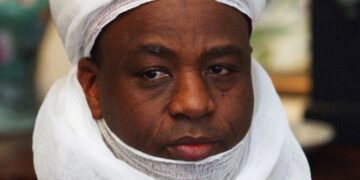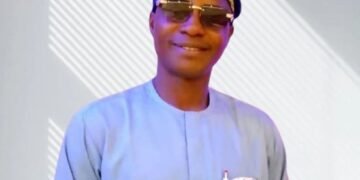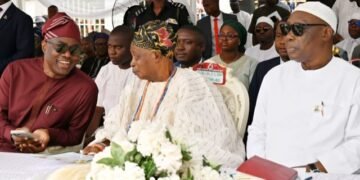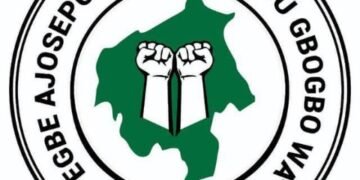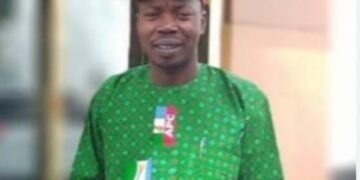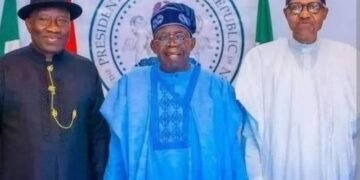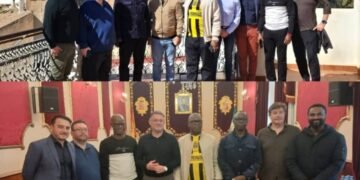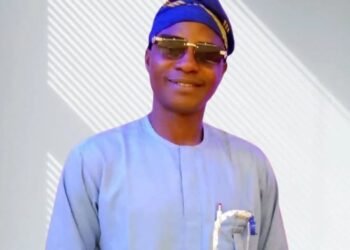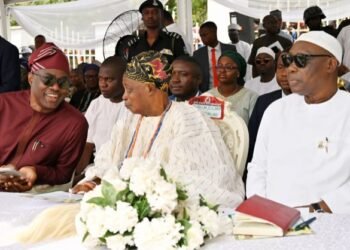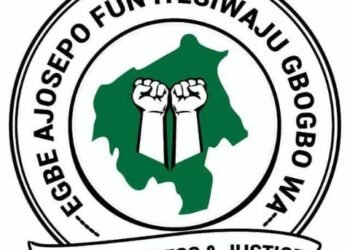The ongoing 2023 elections have proved to be an electoral process like never before. The Presidential and National Assembly election, conducted last Saturday, produced shock waves and surprises hitherto unexpected.
The elections are being conducted amid palpable fears and uncertainty caused by the persisting socio-economic hardships across the land, occasioned by the various anti-people policies of the incumbent administration at the centre.
In the first instance, speculations were rife about the possibility or otherwise of the elections holding. The negative vibe was not unconnected with the recent scarcity of Premium Motor Spirit (PMS), otherwise known as petrol, as well as other petroleum products, induced by yet-to-be justified astronomical increase in the pump price of the products.
In tow, the naira redesigning (or is it re-colouration?) policy was introduced by the Federal Goverment, less than four months before the conduct of the general election. Whatever may be its intent and purpose, the policy has imposed greater hardships and more punishment on the already impoverished people.
Never in the political history of the country would an election be conducted in an atmosphere in which a sitting administration will come up with policies and decisions that may adversely affect the chances of its political party and candidate at the polls. Indeed, it was a big gamble by the President Muhammadu Buhari-led All Progressives Congress (APC) administration.
The February 25 federal election was an electoral exercise which is still generating ripples, and which consequences would, to a large extent, determine the shape and course of future elections in the country.
The exercise was, indeed, a radical departure from what used to be. It clearly changed the narratives and the old order about how elections are being conducted in the country and their possible outcomes.
Dominating the political scene, one week after the federal election, is the ensuing discourse over what can be rightly termed the Peter Obi phenomenon in the 2023 elections.
Obi, who can literally be described as Mr Nobody, rose far above and beyond pre-election permutations to become Mr Somebody. Many are still wondering how a man, said to be without a structure, became a force to reckon with, performing great feats in hitherto impossible places.
In what could be aptly described as a tsunami, Obi and his Labour Party, took the battle to the Lion’s den. He penetrated the impregnable walls of Lagos politics and achieved the impossible.
For the first time in 24 years, Senator Bola Ahmed, the APC presidential candidate and now the President-elect, lost the political battle in his homestead. Obi floored the Jagaban, first at Bourdilon and Ikeja and, on a greater scale, Lagos State. It was unprecedented!!!
Against all expectations, Labour Party made some impressions in the northern part of the country, winning in Plateau and Nasarawa states, as well as in the southern part of Governor Nasir el-Rufai’s Kaduna State.
Labour Party defeated the sitting governor of Delta State and vice presidential candidate of the Peoples Democratic Party (PDP), Senator Ifeanyi Okowa. It was an encore for Obi in Cross River and Edo states where he defeated incumbent Governors Ben Ayade (APC) and Godwin Obaseki (PDP).
The Obi phenomenon spread like wild harmattan fire, ravaging the political landscape in the South-East. His party fundamentally altered the politics of a zone which has been identified as the traditional enclave of the PDP and the All Progress Grand Alliance (APGA).
The bulldozing Obi vulcano could not be stopped in the south-eastern states of Abia, Anambra, Enugu, Ebonyi and Imo. The Labour Party swept the rug off the feat of APGA, PDP and the latest entrant in all the states in the zone, the APC.
A childhood friend who is a lawyer and an entrepreneur, in a telephone conversation with me Thursday night, admitted that he was dumb-founded by what he said is the Peter Obi Movement.

A loyal PDP member, he said: “Honestly, Obi has become a movement. I am a loyal member of the PDP and by virtue of that, I voted for my party and candidate in the presidential election, Alhaji Atiku Abubakar.
“Obi took many people by surprise with his showings in the presidential election. He has gathered a cult-like huge followership to himself. It took me a lot of persuasion before I could convince my 20-year-old son to vote for Atiku and not for Obi.
“I have always admire Peter Obi since his days as the governor of Anambra State. I am fazed by his administrative style and disciplined fiscal policy. He was the only governor that supported former President Goodluck Jonathan when he said the Sovereign Commonwealth Fund should not be wastefully spent.”
Armed with a strong conviction (which may later be punctured, however), Obi, at a press conference on Thursday, asserted that he won the election. He vowed to challenge, in court, the victory of the APC and its presidential candidate, Senator Tinubu.
However, the APC saw the Obi stance as a joke taken too far. Reacting to the legal challenge by Obi, Bayo Onanuga, Director, Media and Publicity, APC Presidential Campaign Council, said it was a welcome development, rather than taking a recourse to arms and violence.
Onanuga, while inadvertently admitting to the Obi phenomenon, said, contrary to his assertion that the election was rigged in favour of the APC, that he was able to achieve the impossible by winning in Lagos State and defeating incumbent governors in some other states, was an attestation to the fact that the election was free and fair.
“The 2023 election is one of the most transparent and peaceful elections in the history of Nigeria. It is because the process was credible that made it possible for Mr. Obi’s Labour Party to record the over six million votes it got, contrary to pre-election forecast.
“That Labour Party and Mr. Obi surprised bookmakers by winning in Lagos State, Nasarawa, Plateau, Delta and Edo where there are sitting governors of either the All Progressives Congress or the Peoples Democratic Party.
“Those governors have entrenched political machinery. That Obi won attests to the credibility of the election process. In those states, most of the sitting governors contested election to go to the Senate and lost to little known candidates of Labour Party,” Onanuga stated in a statement.
Onanuga further warned Obi: “…When he gets to court, he should be prepared to tell the world how his party won over 90 per cent of votes in his region of South-East, while other parties got almost nothing.
“We have evidence of voters suppression, intimidation and harassment in South-East, especially of those who came out to vote for our party.
“Also when Mr. Obi gets to court, he will have to convince the court with his allegation of rigging in over 40,000 polling units across the country, especially in the North-West and North-East where his party had no party agents and did not sign result sheets, as required by law.”
Beyond the Obi phenomenon, the 2023 elections have so far changed the narratives about electoral exercises in the country. The old order is gradually and steadily giving way to new political realities.
Taiwo Adisa, Chief Press Secretary (CPS) to Governor Seyi Makinde of Oyo State, said this much in his Facebook post, on Friday:
“The 2023 presidential election has come with its distinctive features that show us a new Nigeria is possible. The AD/AC/ACN/APC lost election in Lagos for the first time since 1999.
“A Third Force (Peter Obi) emerged from nowhere and made serious impact. True handshakes across the Niger and Benue were seen in the results posted by Tinubu (President-elect), Atiku and Obi.
“The youths have shown a revolution is possible without wanton shedding of blood. We can only keep pushing and pushing and a new Nigeria will dawn right before our very eyes. God bless Nigeria.”
More importantly, the 2023 elections sign-posted the gradual removal of the old hands from politics. These include those who have been featuring prominently in all elections since the advent of civilian rule in 1999.
Undoubtedly, the 2023 elections should signal the end of active involvement of the PDP presidential candidate, Atiku Abubakar in electoral contests. In the same vein, but for the fact that Senator Bola Tinubu won the election, this year’s contest might have been the last time he would be seeking for the plum Number One political office in the land.
As the nation awaits the second election on March 11, with bated breath, and as we begin to witness the plethora of legal battles arising thereof the two elections, the Obi phenomenon will continue to remain a subject of discourse for as long as we continue to rue the 2023 elections.
•Falade is the Publisher of Newscoven.ng

